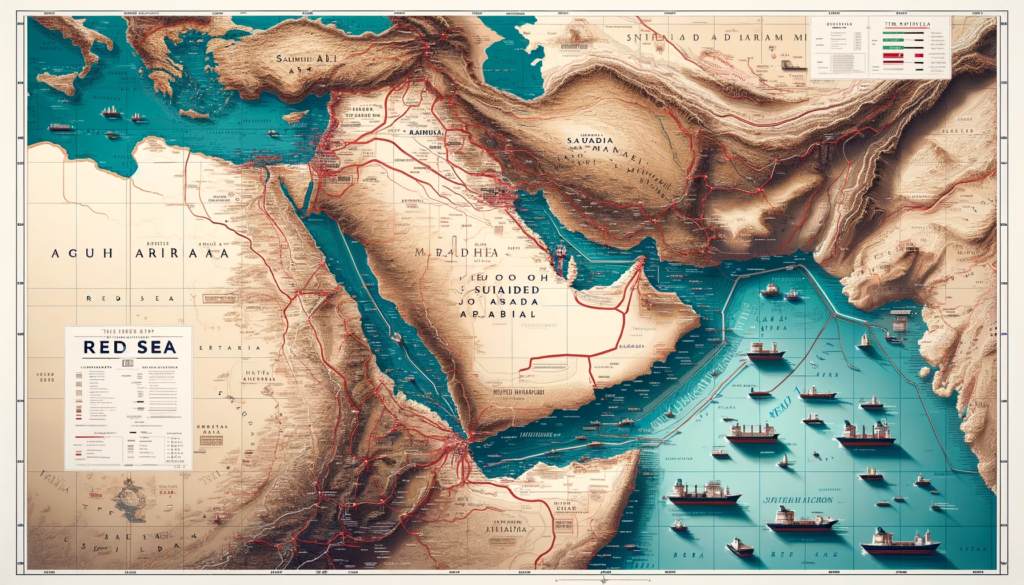Navigating Geopolitical Complexities in the Red Sea Region
The United States recently announced the establishment of a new, multinational effort known as Operation Prosperity Guardian, aimed at securing shipping lanes in the Red Sea. Notably, two major regional players and U.S. allies, the Kingdom of Saudi Arabia (KSA) and the United Arab Emirates (UAE), were absent from the list of participating nations. The absence of these Gulf monarchies from this initiative is not entirely unexpected, given the complex geopolitical realities of the region. It could also signal a growing rift between these Gulf nations and Washington. Bahraini strategic analyst Yusuf Mubarak noted that recent U.S. foreign policy and defense initiatives have placed less priority on the national security interests of historical Gulf allies like KSA and the UAE, favoring regional rivals and their proxies instead.
Mick Mulroy, a senior fellow at the Middle East Institute and a former senior Pentagon official, highlighted that KSA and the UAE’s concerns might stem from public perception issues related to the ongoing conflict between Israel and Hamas in Gaza. While Saudi Arabia and the UAE have a clear interest in securing the shipping lanes, they do not wish to be perceived as supporting Israel. The U.S.’s characterization of this initiative as defending international trade and the right to use international waterways may not fully align with the perception and interests of these Gulf nations.

Furthermore, the Gulf nations, particularly Saudi Arabia and the UAE, have felt neglected by the U.S. in their earlier efforts to raise concerns about the Houthi rebels in Yemen. This group has been responsible for recent attacks on shipping lanes using drones and missiles, and has been in conflict with KSA and the UAE for years. Bahrain-based political researcher Abdullah Al Junaid echoed this sentiment, pointing out the ambiguity in American policies regarding threats to regional security, especially those linked to Iran or Iranian proxies like the Houthis.
Al Junaid also mentioned that Saudi Arabia, with its well-equipped fleet and advanced air defense systems, might not feel the need for a new multinational effort to protect its interests. The kingdom’s capability to handle emergencies independently might discourage it from relinquishing any sovereign decision-making regarding its western fleet to allied parties.

Despite the geopolitical intricacies surrounding Operation Prosperity Guardian, U.S. forces in the Red Sea have adopted a more aggressive stance, as demonstrated by an incident on December 31 where suspected Houthi combatants were engaged at sea. A U.S. defense official confirmed that U.S. forces have the inherent right to self-defense and are responsible for maritime security in the Red Sea, Bab al-Mandeb, and the Gulf of Aden.

In summary, the hesitation of Saudi Arabia and the UAE to participate in the U.S.-led Operation Prosperity Guardian underscores the complexities and shifting dynamics in Gulf-U.S. relations. It reflects a broader context of regional geopolitical challenges, national security priorities, and the delicate balance of power in the Middle East.














